
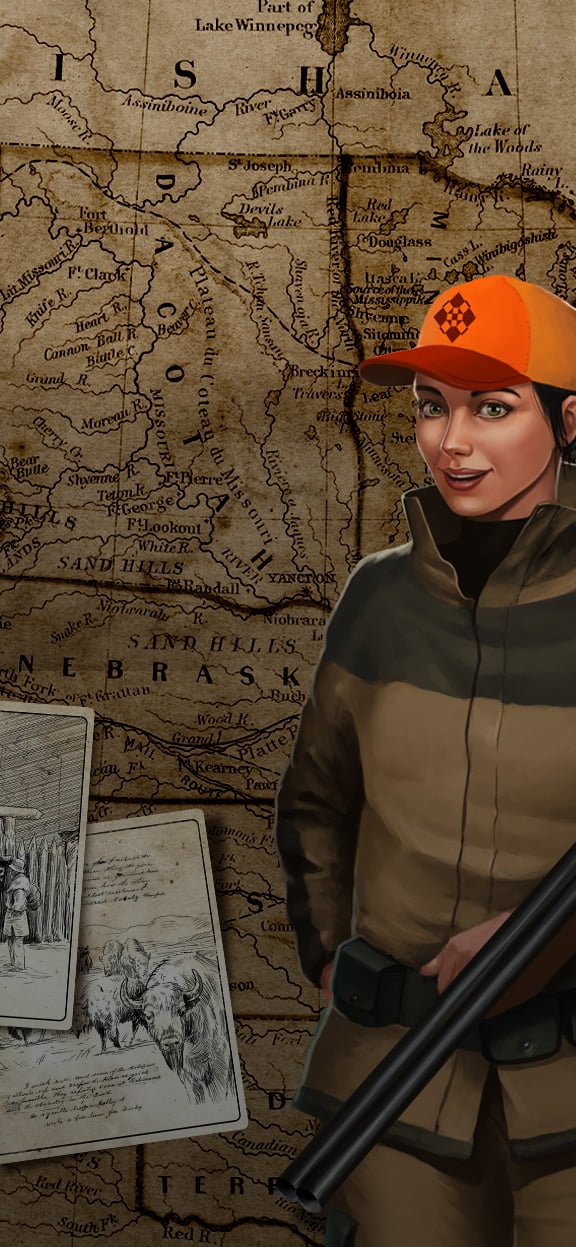


Read the article about our history that appeared in Spidersweb.pl on 30th of September 2021.
Things are happening; there’s certainly a lot going on. And it’s all happening at once, but we like emotions of this type; we are well prepared – one employee explains with excitement. Within just one week, Poland’s second-largest game developer buys an Italian developer studio, is granted a highly sought-after Chinese license and celebrates its tenth anniversary. Currently, Ten Square Games has more than 400 people on board, headquarters in several countries in Europe, and a profit of almost PLN 90 million for the first half of 2021. It is becoming increasingly difficult to believe that this success has its origins in Nasza Klasa, the Polish equivalent of Facebook.
The story of these ten square meters may not be entirely true, as I don’t recall us measuring our first studio. But it was really crowded – laughs Janusz Dziemidowicz, Board Member responsible for technology at Ten Square Games who has worked for the company from its inception. Dziemidowicz is one of the few people who knows the whole truth about the company’s founding legend, encapsulated in its name. Ten square refers to the probable surface area of the first office in which rookie producers began creating the games they then published on Nasza Klasa, founded by Maciej Popowicz and Arkadiusz Pernal.
In 2011, the founders of Nasza Klasa, Maciej Popowicz and Arkadiusz Pernal, gave the green light to finance a video game studio. The small company was a separate project from the very beginning – it didn’t make custom games; instead, it focused on games made specifically for the enterprise. Although it published games on Nasza Klasa, mostly out of convenience, Ten Square Games was not created with Nasza Klasa in mind. – The company came into existence because we had fun making these games, recalls Janusz Dziemidowicz, one of the company’s first employees whom I ask about these ten square meters.
To be honest, I don’t think anyone has ever measured it exactly. It could have been eight or twelve meters, Dziemidowicz tells me. We were renting a small room in Delta House behind Korona in Wrocław (a shopping center – ed.). The studio was only big enough to fit the founders, everyone else worked remotely. Two desks, a printer, a water dispenser, and that’s it. A board member recalls that when all the employees showed up for meetings, they had to hold them elsewhere, as there simply wasn’t enough space for everyone. It was exactly in such conditions that the innovative game The Robinsons was developed. Dziemidowicz compares it to Minecraft. However, the project proved so ambitious that – as is the case with many start-ups – it never saw the light of day.
Still, the studio made an allowance for such a scenario. The insurance policy of the newly formed studio was a smaller, simpler fishing game titled Let’s Fish, which took the team about twelve months to produce. After the title was launched on Nasza Klasa in 2012, right away the money started flooding in.
The founders’ excitement, however, proved to be premature.
We launch Let’s Fish on Nasza Klasa, a moment passes, and the money begins to pour in. Tens of thousands of zlotys within an hour! In our minds, we were already ordering yachts, but things were looking too good to be true – recalls Dziemidowicz with amusement. Nasza Klasa’s payment system turned out to be at fault. Whenever there was a transaction error on the part of the developer, the portal automatically repeated the payment. And then again. And again. In this way, empty transaction data were replicated. Three unsuccessful payments grew to three hundred. The yachts had to be cancelled.
However, the fact of the matter is that Let’s Fish immediately attracted players willing to pay real money for the use of the game’s virtual reservoirs. Since the release of its first game in 2012, Ten Square Games has closed every fiscal period in the black. This tradition continues to this day, and the company’s reports always show a favorable financial balance. Let’s Fish continues to be developed by Ten Square Games. Product Strategy Board Member Wojciech Gattner proudly mentions players who have been enjoying Let’s Fish for a decade. There is also no shortage of anglers with six or eight years of experience who have built bonds that go far beyond the virtual world of the game.
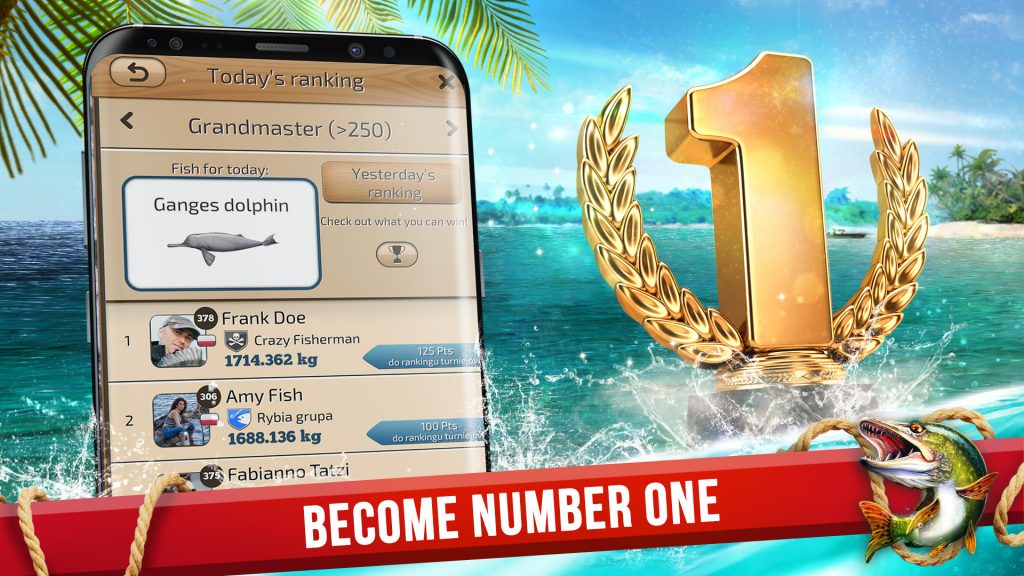
Over the last ten years, Let’s Fish has featured on the Polish Nasza Klasa, the American Facebook, the Russian VKontakte and many other social media platforms. One year after its debut, Poles already counted its user base in millions. There is a mobile version of the game intended for phone use, which is provided with ongoing technical support, and a stand-alone website version found at: www.letsfish.com. You can cast a fishing rod whenever you feel like it, using any browser on your laptop.
In 2017, the Polish company released Fishing Clash, a new title for virtual anglers. The game was developed based on years of experience working on Let’s Fish. The initial title of the game Let’s Fish 2 can still be seen on the dusty tabs featuring additional information on the Google Play platform. Fishing Clash became a global success. It is the most popular fishing game in the world, with over a million downloads each month, and represents the most important IP in Ten Square Games’ entire history. The game is continuously refined, enhanced and expanded. Fishing Clash accounts for the majority of the company’s revenue, generating PLN 114 million in the second quarter of 2021 alone. It is followed by Hunting Clash, with over PLN 30 million in quarterly revenue.
One year after the launch of Fishing Clash, Ten Square Games goes public on the Warsaw Stock Exchange. Wojciech Gattner recalls that this fact served as an additional motivation for the company, which felt the responsibility to a greater degree than ever before. From the moment of becoming listed, the company’s stock chart has resembled a summit ascent: it has lead mostly upwards.
In a word, Geralt first, fish second.
Fishing Clash became for Ten Square Games what The Witcher 3 was for CD Projekt or FIFA for Electronic Arts – a promotion to the Champions League. The Polish company has taken on global proportions, outgrowing its previous format. In addition to the modern headquarters in Wrocław and a prestigious studio in Warsaw, the company is opening branches in Berlin (Germany) and Bucharest (Romania). On its tenth anniversary, Ten Square Games is expanding further by buying in July 2021 the Italian studio RORTOS, specializing in developing mobile flight simulators. The transaction made for the enormous sum of 45 million euros means that we are likely to see another aircraft simulator launched this year.

Wojciech Gattner assures us that the Italian acquisition has nothing to do with swagger: There is no flexing of muscles in this industry. We run a prudent business, making decisions with the long-term future of the company in mind. And although we don’t go to work wearing suits, we’re still serious people who know what they want. Gattner explains that the acquisition of RORTOS meant getting hold of valuable, unique know-how relating to simulators, which have been created and developed by the Italians for a decade. RORTOS provides a set of competencies that Ten Square Games acquired thanks to this transaction and can now further develop, i.e. offer its players completely new productions while introducing proven Free2Play mechanisms.
With teams of people working in Italy, Germany and Romania, Ten Square Games has become an international company. But even now, with more than 400 people on board, the management is sure about one thing: we are not a corporation. It was the relatively flat organizational structure that was to enable the company to use the pandemic and remote working as a true test of this type of management style. Thanks to immediate reactions in the brand new and rather grim reality of a virus-infected global economy, Ten Square Games has opened the next chapter of its operations.
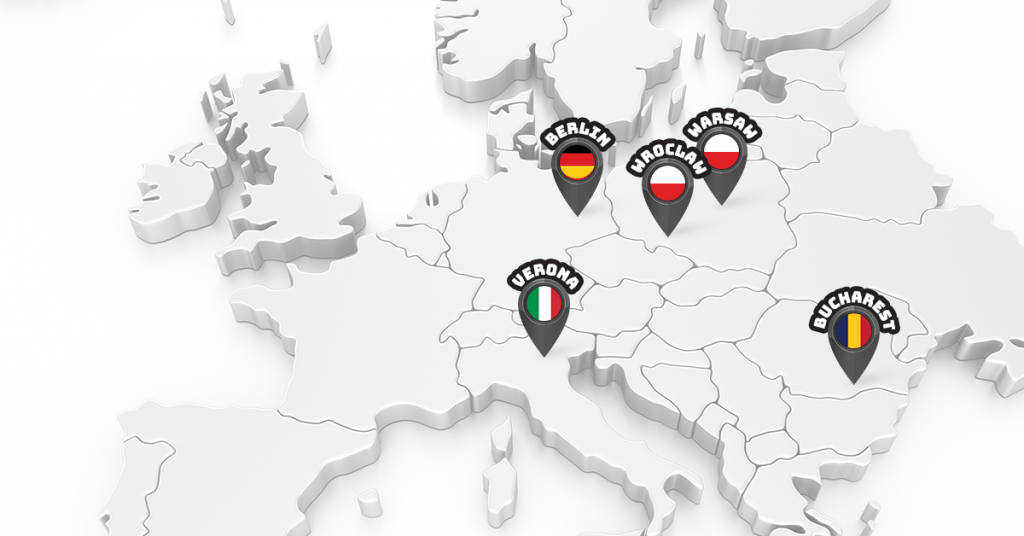
When almost the entire world fell ill with COVID-19 in early 2020, domestic economies felt the impact drastically. Corporations have entered a cautious management mode and have begun to cut budgets, uncertain of the coming weeks and months. Marketing was one of the areas most acutely affected by cost-saving cuts. Ten Square Games took a completely different route. The Polish game developer noticed that by spending the same amount on promoting its titles in the App Store or Google Play, it reached a larger audience. This was due to having less competition and other publishers further tightening their belts. Players wanted to have fun regardless of the pandemic. People needed to be able to relax. Especially in times of social isolation when clubs, restaurants and sometimes even parks were closed.
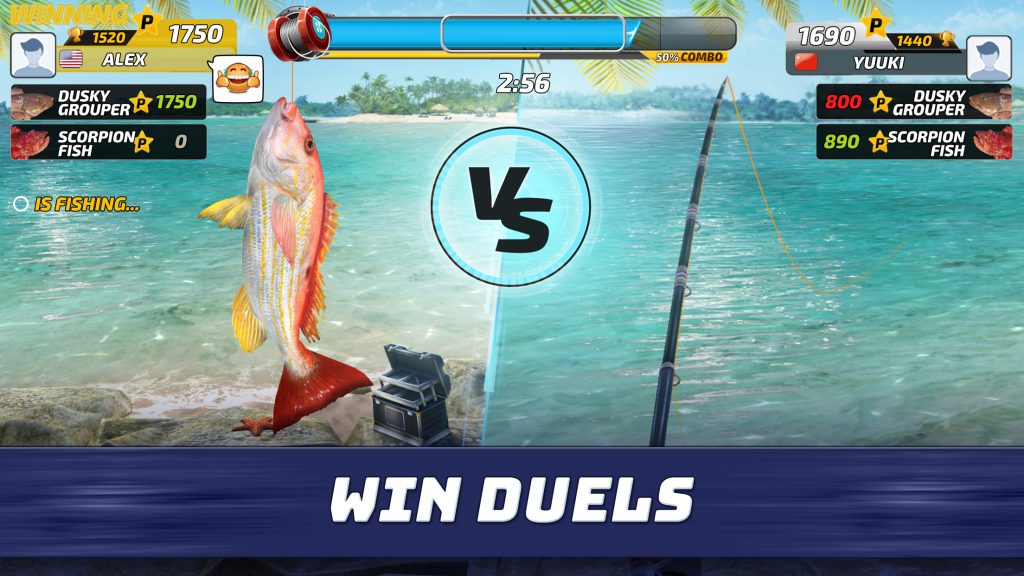
In these circumstances, Ten Square Games management made a risky decision: instead of cutting budgets, they dramatically increased their spending. Before the outbreak of the Covid-19 pandemic, Poland was spending less than two million dollars a month on promoting its mobile titles. These amounts increased significantly over the course of the lockdown. TSG found it worthwhile to spend more, as it provided them with a wider reach than ever before and continued to be profitable. Janusz Dziemidowicz recalls that this decision was not easy, but a thorough analysis of the situation within a short time was justified:
It is not uncommon for companies, also game development enterprises, to take as long as one month to make important decisions. We are much more flexible. We don’t have committees that have to approve every change – explains Dziemidowicz – instead, we have a fairly flat structure and can react immediately. A few meetings, a quick decision, and we are ready to take action. And that’s how we do things. This is when you are close to the core of this business and its meaning. Wojciech Gattner has similar recollections: During the pandemic, gamers continued to spend money on entertainment. The situation actually looked even better than before the lockdown.
There are companies that have better analytics than we do. There are companies more flexible than we are. There are also ventures that are more adventurous than us. You could be endlessly making such comparisons and looking for differences. But that’s not the source of our success; it comes from the right balance of prudence and romanticism, Dziemidowicz replies when I ask him why they’ve made such good use of the remote reality when many other publishers left it too late. The management of TSG remembers seeing a clear division between sharks and dinosaurs when keeping an eye on their competition from the mobile sector.
Gattner sees a dependence on structures here: the greater the bureaucracy, the worse the reaction of the firm to the new, pandemic situation. For Ten Square Games, the period between March and October 2020 is the time of the company’s highest growth on the stock exchange. Share prices rose from over PLN 200 to PLN 670 because investors, just like gamers, had to pursue their goals by committing funds to whatever became available and profitable at the time.
With a battalion of over 400 employees, several development studios, over 44 million users across all games and 10 years of know-how, it seems Ten Square Games could easily try its hand at the desktop gaming market. It would be a very interesting clash, confronting the second-largest entity in Poland’s sector with leaders such as CD Projekt, Techland and 11 bit Studios. That being said, such a contest is unlikely to happen, at least not on computers and consoles. TSG does not seem to show any interest in PlayStation, Switch or Xbox. The management claims – in all seriousness – that they’re as far removed from desktop gaming as they are from the Stone Age.
If we wanted to make console games, it would make the most sense to start a new company. It’s an altogether different set of tools and competencies. And we love mobile games, after all. It’s what we enjoy doing the most – Gattner explains. However, the board continues to keep a close eye on the market trends and considers one of them particularly interesting, namely cross-platform games. Chart-toppers like Genshin Impact, Fortnite and Minecraft connect players by means of phones, consoles and computers, which from a mobile publisher’s perspective could be of enormous importance in the future. However, in the here and now, the mobile market is all that matters to Ten Square Games. This particular gaming sector is growing the fastest, it has the largest user base, and this is where TSG has gained experience that has given it a place in the front row of game publishers.
Joanna Kabat-Szwaba, HR manager at Ten Square Games, points out another interesting aspect that differentiates the development of mobile games from stationary games. In the case of triple-A games, production studios are constantly chasing the release date. Hence the infamous crunch in the gaming industry. Mobile titles are not restricted by rigid publication dates. Changes to the schedule are the norm, and this gives us much more flexibility and a comfortable working environment.
A developer’s dream come true? Not exactly.
Four active smash hits for over two hundred games and prototypes. This is the TSG’s balance sheet on its tenth anniversary. It might seem like we’re dealing with devastating statistics, but that’s nothing out of the ordinary when it comes to mobile gaming. When developing titles for smartphones, one needs to concede that most games will never feature in the top rankings on Google Play and App Store. For this reason, any good publisher knows when to make the difficult decision to interrupt the production and transfer employees to another project. Which isn’t easy when you’ve dedicated months of work to a game and often left a piece of yourself in it.
The truth is, this is how everyone in this industry operates. It makes no sense to continue investing in a title that doesn’t have much potential. Any attempts at rescuing such a game mean throwing good money after bad. A more rational solution, which also considers the motivation and commitment of our employees, is to redirect their skills and energy to promising or new projects – Joanna Kabat-Szwaba admits. Over the long term, developers prefer to work on a title that entertains millions of people rather than try to resuscitate a corpse. Other than that, a successful mobile game is like a bottomless bag when it comes to human resources. Fishing Clash was created by 20 developers. Today, four years after its debut and with a user base of 90 million, there are almost one hundred people working on that game.
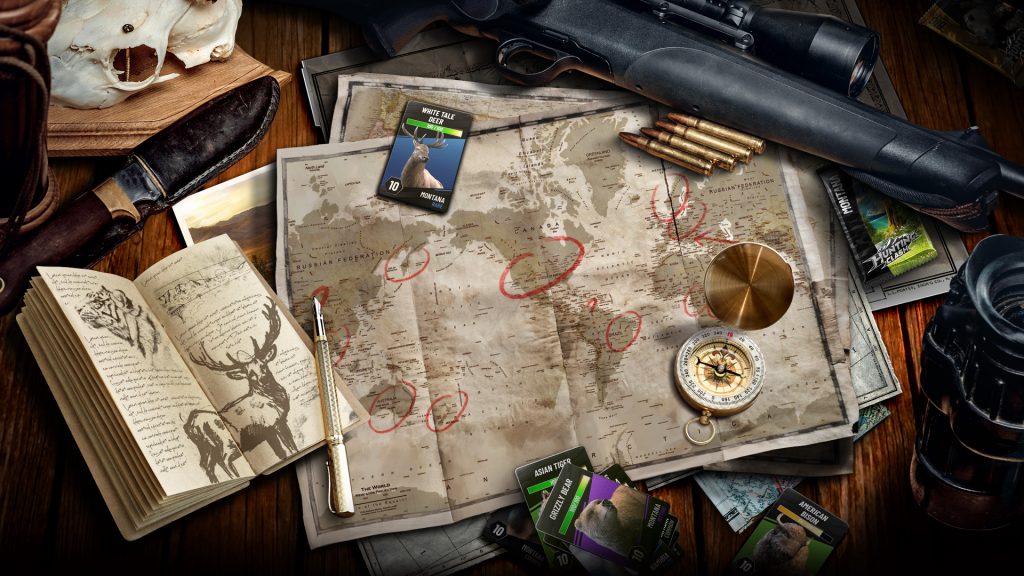
That’s not to say that Ten Square Games only focuses on fishing or hunting games, or lately, aviation games. The company has recently added Undead Clash to its list of games. The title is a survival horror taking place in a world overrun by the undead. Undead Clash has already passed some very promising tests. TSG’s Undead Clash provides an interruption from other projects, where the gruesome world of zombies must be forgotten in favor of more realistic visions. Here, in Undead Clash, the monsters take to the streets, just like in Michael Jackson’s Thriller.
The People’s Republic of China is currently the largest gaming market with the largest pool of potential players. It is little wonder that publishers from around the world are keen to conquer China. The peculiarity of the Chinese market means that in order to enter it, you need to be assisted by a Chinese partner acting as an intermediary and a local publisher. However, even such an intermediary does not guarantee that the title will be launched. All the more reasons for TSG to celebrate being awarded the official license for Fishing Clash 18 months after putting in the application. TSG’s mobile title is published in China by the tech giant NetEase – the same one responsible for the Chinese launch of Diablo, Overwatch, or WoW games, and even Marvel superhero productions. It was NetEase who prepared the Chinese localization of Fishing Clash and provided Poles with a plug-in limiting minors’ access to the game, as required by the Chinese government.

Ten Square Games has thus managed to unlock the heavy and massive gateway to the world’s most lucrative gaming market. Poles have managed to climb over the Great Wall, which is a feat coveted by many but achieved by few. Fishing Clash has already had a limited Chinese launch on Apple phones, and early results have exceeded the management’s expectations. When we combine the company’s entry into China with the acquisition of the Italian studio RORTOS and the record-breaking results achieved during the pandemic, the excited mood readily apparent at TSG’s Wrocław headquarters no longer surprises. Poles are going places.
Dziemidowicz, Gattner, Kabat-Szwaba – all of them provide me with a similar answer when I ask them where they expect their company to be in the next decade. Everyone wants the company to retain its team spirit and excitement, hoping that its values such as “dare to explore” continue to be actively made use of.
Expansion to Western Europe or entering the Chinese market are extremely significant and impressive achievements, with a considerable economic impact. The rising share price, tens of millions of Polish zlotys in revenue, and notable acquisitions are in stark contrast with the enthusiasm of the board representative as he tells me excitedly about his meeting with the veterans of the browser-based Let’s Fish, who have been playing Ten Square Games’ first game for a decade. As they assured the developers during the gamers community event, the players have no plans of stopping. It is apparent that such small but unique and emotional occurrences are also TSG’s driving force.

Let’s start off with a truism – achieving a high employee satisfaction should be one…
read more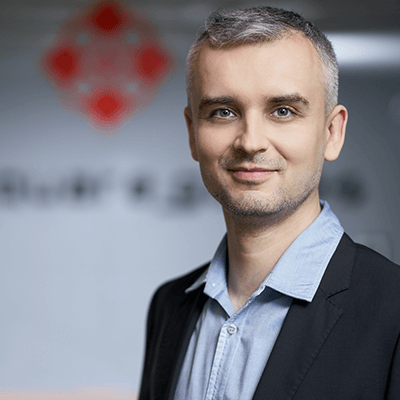
Andrzej Ilczuk, current COO of the Company, has been nominated by the Supervisory Board to…
read more
Despite a challenging market environment, Ten Square Games S.A. (TSG, the Company) reported a stable…
read more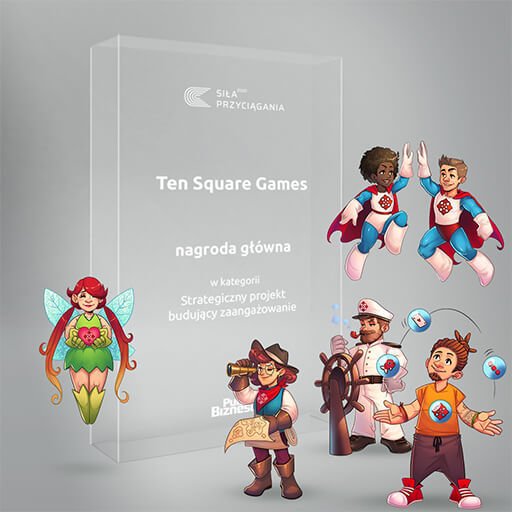
On November 25th, Puls Biznesu, one of Poland’s top economic mediums, announced the results of…
read more